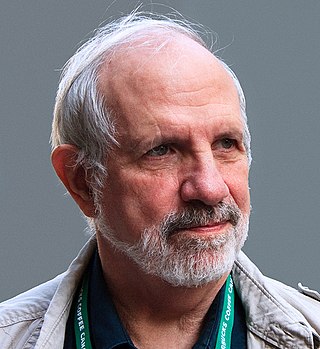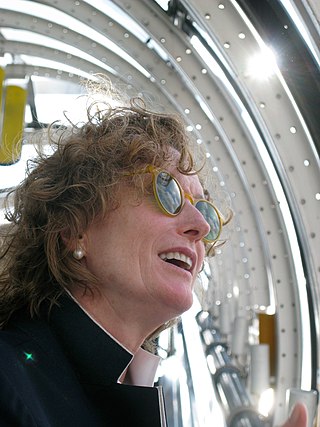
Brian Russell De Palma is an American film director and screenwriter. With a career spanning over 50 years, he is best known for work in the suspense, crime and psychological thriller genres. De Palma was a leading member of the New Hollywood generation.

The Deauville American Film Festival is a yearly film festival devoted to American cinema, which has taken place since 1975 in Deauville, France.

Vincent Lindon is a French actor and filmmaker. For his role in the film The Measure of a Man (2015), Lindon won Best Actor at the 2015 Cannes Film Festival, Best Actor at the 41st César Awards and the IFFI Best Actor Award (Male) at the 46th International Film Festival of India.
Philippe Blasband is a filmmaker and a writer in French language from Belgium. He is of Jewish origin and lives in Brussels.

Lisa Lou Banes was an American actress known for more than 80 film and television roles, as well as stage appearances on Broadway and elsewhere.

A Tale of Winter is a 1992 French drama film written and directed by Éric Rohmer, and starring Charlotte Véry, Frédéric van den Driessche, Hervé Furic and Michael Voletti. It is the second instalment in Rohmer's "Contes des quatre saisons" series, which also include A Tale of Springtime (1990), A Summer's Tale (1996) and Autumn Tale (1998). The film was entered into the 42nd Berlin International Film Festival.
Diane Kurys is a French director, producer, filmmaker and actress. Several of her films as director are semi-autobiographical.

Paris is a 2008 French comedy-drama film written and directed by Cédric Klapisch. Starring an ensemble cast, the film depicts the stories of a diverse group of people living in Paris. It began shooting in November 2006 and was released in France on 20 February 2008. Its UK release was in July 2008.

Peppermint Soda is a 1977 French coming-of-age comedy-drama film co-written and directed by Diane Kurys. This autobiographical film was her directorial debut, and it won the Louis Delluc Prize at the 1977 Cannes Film Festival.

François Cluzet is a French film and theatre actor. Cluzet has collaborated with many important European and American directors, including Claude Chabrol, Bertrand Tavernier, Claire Denis, Agnieszka Holland, Robert Altman and Olivier Assayas. In 2007, he won a French César Award after starring as a doctor suspected of double homicide in the thriller Tell No One. Cluzet is best known for his role as Philippe in the film The Intouchables (2011).

The Musée de la Vie romantique is one of three literary museums in Paris. It is located at the foot of Montmartre hill in the 9th arrondissement of Paris.

Jean-Claude Floch, known as Floc'h is a French illustrator, comics artist, and writer. He is known for his use of the style known as ligne claire. His older brother Jean-Louis Floch was also a cartoonist and illustrator.

Le Grand Journal was a French nightly news and talk show television program that aired on Canal+ every weekday evening from 19:10 to 20:20. It debuted on August 30, 2004 and was created and hosted by Michel Denisot, succeeded by Antoine de Caunes and then later by Maïtena Biraben. Victor Robert took on the reins from 2016 to the program's end in 2017. Originally a one-hour program, it expanded to two hours in 2005. Even though the program was broadcast on the premium channel Canal+, it was a non-encrypted program.

The Women in Film Honors —first presented in 1977 by the now–Los Angeles chapter of the Women in Film organization—are presented to honor women in communications and media. The awards include the Crystal Award, the Lucy Award, the Dorothy Arzner Directors Award, the MaxMara Face of the Future Award, and the Kodak Vision Award.
Karmina is a Canadian comedy horror film from Quebec, released in 1996.

C'est la vie is a semi-autobiographical 1990 French drama written and directed by Diane Kurys. Like Peppermint Soda, Cocktail Molotov, and Entre Nous the plot revisits the theme of divorce and its effects. Set in the French beach resort of La Baule-les-Pins in the summer of 1958, it is mainly narrated in voice-over from the thirteen-year-old Frédérique's diary.
Orchestre National de Jazz is a French orchestra that was created by French Ministry of Culture in 1986. It has had 12 musical and artistic directors, more than 200 soloists and recorded 33 albums. Orchestre National de Jazz won the Victoires du Jazz in 2009 and 2020, and was nominated for a Grammy Award in 2012 for the album Shut Up And Dance composed by John Hollenbeck.













